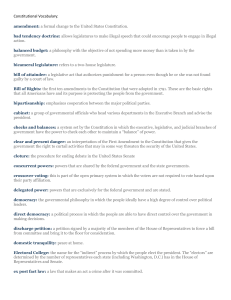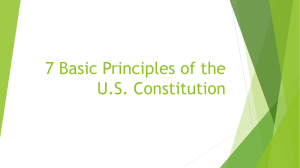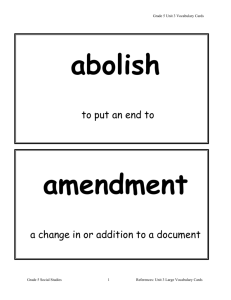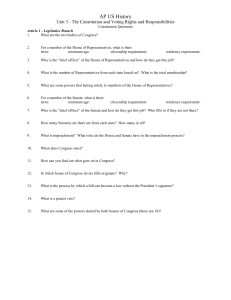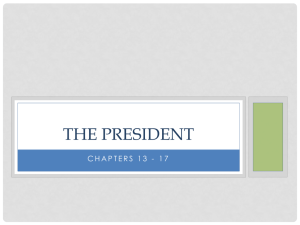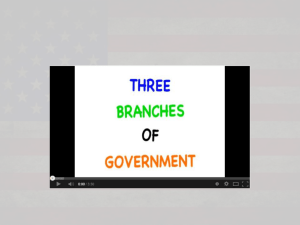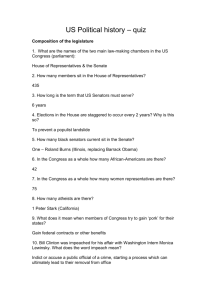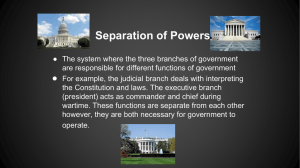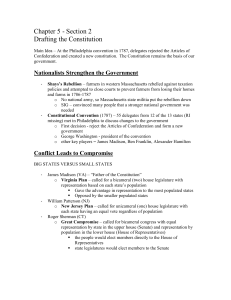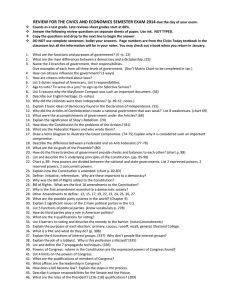Articles of the Constitution Jigsaw
advertisement
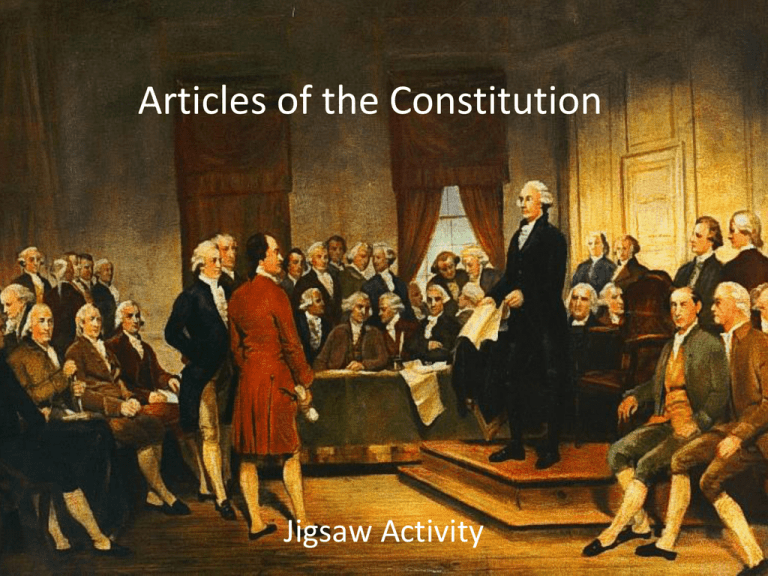
Articles of the Constitution Jigsaw Activity Directions 1. You and you group partners will be assigned one or more articles of the Constitution. 2. You are to read your article and understand and get comfortable with the information. 3. You are to make no more then two powerpoint slides to teach your fellow classmates about your article that you were assigned. (You should use charts, pictures, whatever to dress your slides up). 4. When you are done you have to be able to answer the questions that go with your article. You will have to upload your PP slides to schoology and ready to present on Monday 9/23. 5. U.S. Constitutionhttp://www.archives.gov/exhibits/charters/constitution_t ranscript.html Article 1: The Legislature (Congress) 1. 2. 3. 4. What are the three basic qualifications if you want to be a representative of any state? What are the three basic qualifications to be a senator (see Section 2 and 3)? After considering colonists’ reaction to British taxes and after reviewing both the length of the term of a member of the House of Representatives as well as the way in which they are elected (see Section 2), explain why all bills to raise revenue (taxes) must originate in the House of Representatives rather than the Senate. Summarize how both houses are involved with lawmaking. How can they restrict the lawmaking power of the President? (see Section 7). After reviewing Section 8, explain what powers Congress has over the nation’s finances AND over its relations with foreign countries. Then explain how these powers limit the power of the president. Article 2: The Executive 1. What is the length of a president’s term in office? What are the three qualifications necessary to be eligible for the presidency? (see Section 1) 2. What powers does the president (the head of the executive branch) have over the military and foreign relations? (see Section 2) 3. List three other important powers or duties of the president (see Section 2) 4. What are three checks on presidential power that the Senate has that the House of Representatives does NOT have? (see Section 2 and also Article 1 Section 3) Articles 3-7: The Judiciary (Judges), Interstate Relations, Amendments and Ratification 1. How are Supreme Court justices appointed? (See Article 2 Section 2 Paragraph 2). Summarize how this demonstrates the principle of checks and balances. 2. In what way does Congress control the judicial branch? (see Section 1) 3. Explain how the process of forming new states (see Article 4 Section 3) and amending the Constitution (see Article 5) both demonstrate the principle of federalism. 4. What are two parts of Article 6 that illustrate how the national government is supreme to any other level of government? (see Sections 2-3)

